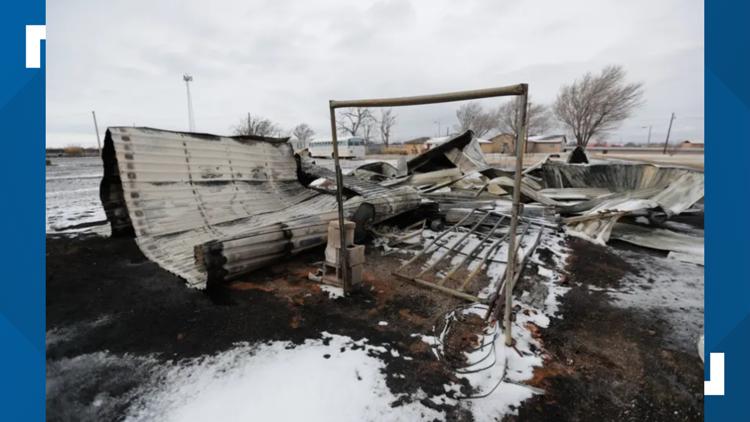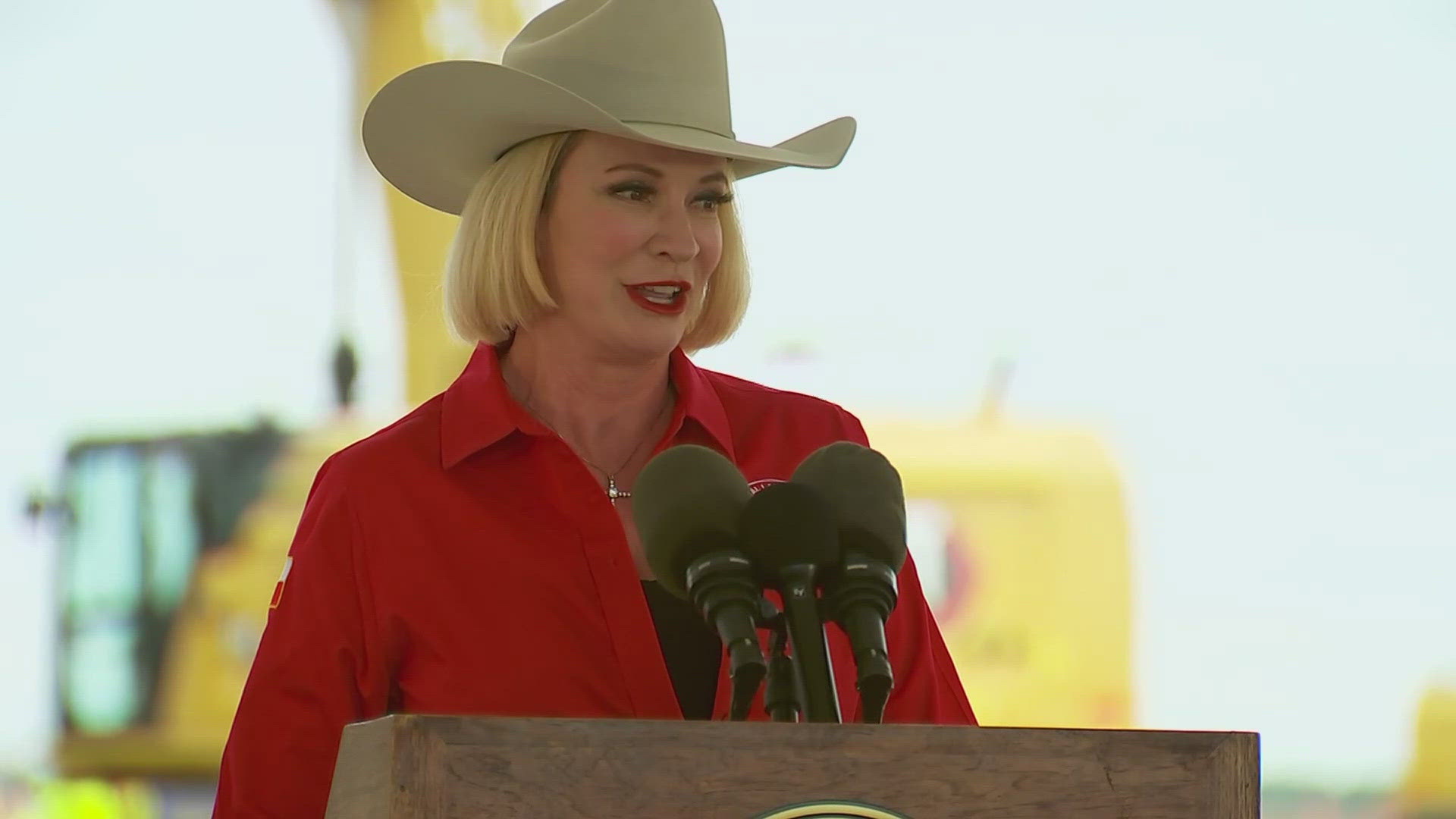LUBBOCK COUNTY, Texas — A decayed utility pole that broke, causing power wires to fall on dry grass in the Texas Panhandle, sparked the state’s largest wildfire in history, a Texas House committee confirmed Wednesday.
And other poorly maintained power equipment sparked four additional fires across the region earlier this year, the committee said.
The committee also found that a lack of readily available air support, ineffective communication from faulty equipment and coordination among agencies inhibited on-the-ground efforts to contain the Smokehouse Creek fire and others that ravaged the Panhandle earlier this year.
In response, the committee made up of three House members and two landowners recommended the Legislature have more effective monitoring and rule enforcement to check “irresponsible” oil and gas operators and improve accountability with utility providers when it comes to inspecting and replacing power poles.
The 48-page report largely confirmed what was previously established in the days and weeks following the fire. It appeared to rely heavily on testimony from three days of public hearings the committee held in Pampa, a Panhandle town near where the fires raged.
The deadly wildfires disrupted life in the Texas Panhandle after they started in late February. Two people died and more than 1 million acres burned across several counties — Hutchinson, Hemphill, Roberts, Carson, Gray and Wheeler.
The fires caused extensive damage in its wake. The Panhandle region is largely rural, where cattle are known to outnumber residents. More than 85% of the state’s cattle population is located in the Panhandle. Many residents lost everything — 138 homes burned, according to the report, and more than 15,000 head of cattle, including pregnant cows, perished.
Hundreds of water wells were also destroyed as the fires raged through the Panhandle. According to the report, this has eliminated sources of water for people and livestock in the region, creating another hurdle to overcome.
Xcel Energy, a Minnesota-based company that has provided electricity in that portion of the state, previously acknowledged its role in the Smokehouse Creek fire. Following the release of the committee's report, it said they are taking action to mitigate wildfire risk, including updating systems to be more resilient in extreme weather and adjusting wildfire settings on their equipment.
“We care deeply about the Panhandle communities harmed by wildfires,” the company said. “Our people live and work in these same communities.”
The company said it they look forward to working with the Public Utility Commission, the state legislature, members of the public and other agencies in response to the wildfires. Osmose Utility Services, a Georgia-based company Xcel has contracted to manage its lines in Texas, did not return messages from the Tribune. Both companies have been sued in the aftermath of the fire.
Scott McBroom, a Fritch resident, fled his home when the Windy Deuce Fire breached his neighborhood. McBroom and his wife Deana lost everything. It was his childhood home.
McBroom, who learned about the report’s findings through a Texas Tribune reporter, said he was angry to hear it. He said companies should have done more to maintain the power lines and poles.
“It’s just frustrating because through no fault of your own you end up losing everything,” he said. “It does make you angry because they have been neglecting stuff for a while.”
The family, including their dogs, are living with their daughter in Borger while they figure out what’s next.
Efforts to extinguish the fires showed how flawed the state’s response to emergencies is in vulnerable areas of Texas. Volunteer fire departments were first on the scene, but had poor equipment, including broken radios, due to running on a tight budget. Wind speeds and a lack of availability caused a delay in air support being used as the fire spread.
The committee also called for more resources to contain wildfires before they grow out of control. Their suggestions range from Texas obtaining its own firefighting air fleet, additional funding for volunteer fire departments, and upgrading statewide communications systems for better communication across all responding agencies.
Investigators began looking into poorly-maintained power lines as the cause of the fire in the days after it started. According to the report, wildfires ignited by power lines have been among the most destructive in the region since 2000 — causing more than 1,300 fires and burning more than 1.4 million acres.



